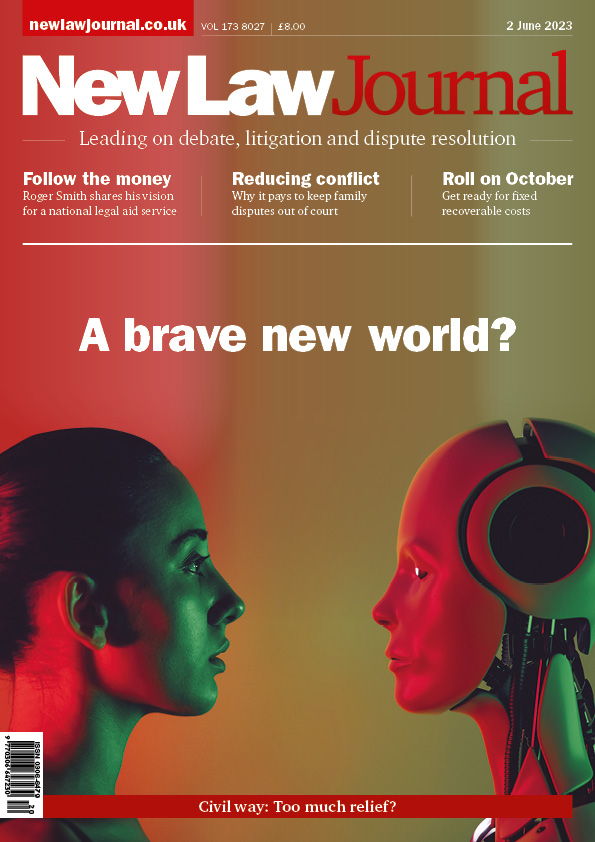THIS ISSUE

Andrew Parker reviews the draft rules for extending fixed costs to cases valued up to £100,000
Corporate lawyers should not fear the rise of artificial intelligence (AI), writes Ziad Mantoura, solicitor and senior vice president at alternative legal service provider Epiq, in this week’s NLJ.
In this week’s NLJ, Caroline Bowden, consultant at Anthony Gold, is cautiously optimistic about a Ministry of Justice (MoJ) consultation on the earlier resolution of private family law arrangements for children, finances and housing. The aim is to keep family disputes out of court where possible, an aspiration approved of by family lawyers.
Could Starmer, Davey or Sunak (or whoever becomes the next prime minister) rescue the legal aid system? In this week’s NLJ, columnist Roger Smith looks back to the Cameron-Osborne years of austerity, before examining potential routes back to functionality.
India has opened its legal market to foreign firms. What opportunities have arisen as a result, and what restrictions apply? In this week’s NLJ, Rupa Lakha, partner, and Neeva Desai, trainee solicitor, at Charles Russell Speechlys, take a look at the significant potential for both Indian and foreign law firms.
Roger Smith sets out a vision for a national legal aid service—& how we might go about funding it
Professor Graham Zellick KC considers the use of the designation KC by honorary silks
For many participants in a family dispute, almost any alternative is better than ending up in court. Caroline Bowden hopes the government will succeed in getting this message across
What is an accident? Asela Wijeyaratne & Mark Welbourn examine a return to orthodoxy under the Montreal Convention on air passenger liability
Wilson Leung examines a recent judgment providing much-needed clarity on the process of bringing committal proceedings in Hong Kong
MOVERS & SHAKERS

Freeths—Ruth Clare
National real estate team bolstered by partner hire in Manchester

Farrer & Co—Claire Gordon
Partner appointed head of family team

mfg Solicitors—Neil Harrison
Firm strengthens agriculture and rural affairs team with partner return
NEWS
Conveyancing lawyers have enjoyed a rapid win after campaigning against UK Finance’s decision to charge for access to the Mortgage Lenders’ Handbook
The Crown Prosecution Service (CPS) has launched a recruitment drive for talented early career and more senior barristers and solicitors
Regulators differed in the clarity and consistency of their post-Mazur advice and guidance, according to an interim report by the Legal Services Board (LSB)
The dangers of uncritical artificial intelligence (AI) use in legal practice are no longer hypothetical. In this week's NLJ, Dr Charanjit Singh of Holborn Chambers examines cases where lawyers relied on ‘hallucinated’ citations — entirely fictitious authorities generated by AI tools
The Solicitors Act 1974 may still underpin legal regulation, but its age is increasingly showing. Writing in NLJ this week, Victoria Morrison-Hughes of the Association of Costs Lawyers argues that the Act is ‘out of step with modern consumer law’ and actively deters fairness







